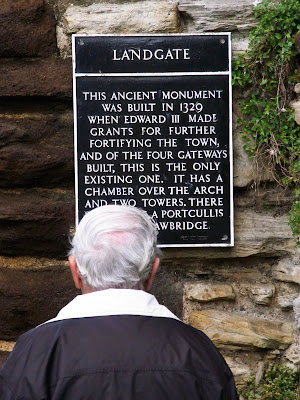Since I had a day-trip planned, I thought this is the perfect opportunity to just take the CX1 out and see how it performs. I have yet to really figure out the best image settings and camera settings so chances are high that my pictures with the CX1 will improve as time goes by. This is just a short report to see how the camera performs if you just take it out and use it as a point & shoot.
I thought a good starting point for my image settings is to use the same settings that worked so well on the R10. The settings are: Contrast +2, Sharpness -1 and Color Depth -1 (the normal color settings are too vivid for my liking). I left the camera on ISO 80 for most of the time and relied on the new Auto White Balance and the metering to get everything right.
The weather was great although there were a few dark clouds at times so this meant it was difficult to capture the full dynamic range. This was no problem I thought since one of the biggest improvements from previous cameras is the new DR mode. So, is this just a marketing gimick or does it really work?


Looking at the images above, the answer has to be yes, it does work and very well at that. The only restriction is that it only works well for static scenes and not for people shots or anything where there is a lot of movement, you also need to hold the camera still or best use a tripod for best results.
As you can see the gain is indeed remarkable and should really benefit anyone who wants to capture more dynamic range in his landscape shots. I was however not done and tried to find out how much more can you get out of the pictures by using the Recovery option in ACR. I have set the recovery slider to 100 and have not done any other modifications. The results speak for themselves and are impressive indeed.


The AF speed has also been masively improved and also my biggest gripe with previous cameras where the LD screen freezes is now gone. This means the CX1 looks to be the fastest and most accurate focusing camera from Ricoh at both 28mm and 200mm.

The 'Easy Mode' is now a proper easy mode and works very well, it even activates the macro automatically for you. This is a big improvement from the 'Easy Mode' found on the R10.

High ISO is also improved and while it can't compete with a dSLR it is perfectly usable as you can see on the above picture taken at ISO 400.

As a travel camera it is great and due to the very versatile lens it can handle landscapes but also closeups and wildlife pictures without problems.

The image quality so far seems very good although there seems to be too much noise reduction being applied so some small details are smeared. I need to try out different settings but if Ricoh could release a firmware update to allow disabling of the Noise Reduction it would be great.
This is the first outing with the CX1 and here will be a lot more. I have really enjoyed using the camera and it performs great in all situations so far. This is not a definitive conclusion and I will post more about the build, handling and all the most interesting features in the coming days and weeks so do check back for the updates and the final review.
One word to the LCD screen, it is simply fantastic and can be seen even in very bright light but do not wear polarized sunglases if you want to shoot in portrait mode, the screen just goes black in this situation, it works fine in landscape mode though.
You can find all pictures posted here and some more in the CX1 Sample Gallery.

No comments:
Post a Comment